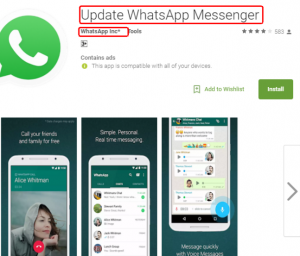


Worldwide, WhatsApp is the most popular messaging service in over 100 countries. It has also added payments in its two biggest markets, India and Brazil. Since its simple beginnings, it has added features such as voice calling, video calling, group calls (video and voice), and in early 2018 launched WhatsApp Business. WhatsApp, however, remains the market leader its sector. Both founders have left the company based on these concerns. This has caused some degree of controversy related to data sharing with the parent company, despite promises of increasing levels of encryption, reportedly end-to-end by 2016. In February 2014, it moved to acquire WhatsApp for $19 billion, which remains its largest acquisition to date and one of the largest tech acquisitions in history. By October 2011, one billion messages were being sent per day by early 2013, WhatsApp could boast 200 million active users.įacebook clearly saw WhatsApp as a potential threat to its own offering, and therefore flexed its muscles. From that point, WhatsApp marched to ubiquitous status. WhatsApp incorporated multimedia messaging later in the same year, and was released on Android the following. This was enough for Acton to convince a circle of fellow ex-Yahoo employees to part with $250,000 in seed funding. WhatsApp 2.0 was an instant success, quickly reaching 250,000 active users. WhatsApp was unique at the time, outside of Blackberry’s BBM, in providing a free message service that allowed users to log in with their phone number. WhatsApp 2.0 incorporated the messaging function that would come to be the app’s defining feature. Users quickly came to use this as an instant messaging service, planting the seed for what the app would become. The app initially focused on statuses Koum later revealed that part of his motivation was to stop missing calls while he was the gym. It was Koum who saw the potential of operating through the Apple App Store after purchasing an iPhone in early 2009. WhatsApp is a messaging app for smartphones created in 2009 by two former Yahoo employees, Brian Acton and Jan Koum.


 0 kommentar(er)
0 kommentar(er)
